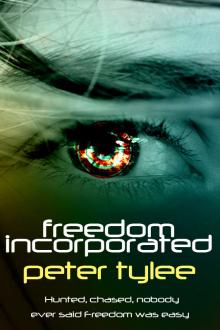Gift : 12 Lessons to Save Your Life by Edith Eger (ebook voice reader .TXT) 📗

- Author: Edith Eger
Book online «Gift : 12 Lessons to Save Your Life by Edith Eger (ebook voice reader .TXT) 📗». Author Edith Eger
Though generous and caring, Sean could also be controlling. Alison relied on him, yet resented him for being in charge of her life, and she began to retaliate, vying for control by starving herself. She was hospitalized three times for an eating disorder, but the self-harm only escalated. When she began burning herself on the arm and leg, Sean lost hope. He had an affair, and then another, and eventually ended their eighteen-year marriage.
More than a decade later, Alison was still fighting with him. Over intellectual property rights to the songs they’d written together. Over his unfortunate attempt to seduce the student she’d sent to him for professional advice. Their marriage had ended long ago, but they were still locked in a power struggle, both making harmful choices.
I told Alison if she wanted to bring an end to the hostilities, she needed to look not at the causes of the conflict, but at the maintainers.
“How are you maintaining a point of view that isn’t serving you anymore?” I asked.
Alison was preoccupied by the desire to prove Sean’s guilt and her innocence. She essentially had him on trial in her mind, her inner life an ongoing courtroom drama. But it was an unwinnable fight.
“Honey,” I told her, “you can be dead right—and you’re still dead. So do you want to be happy, or do you want to be right?”
The best way to let go of the need for control is to become powerful. Power has nothing to do with brawn or domination. It means you have the strength to respond instead of react, to take charge of your life, to have total ownership of your choices. You are powerful because you’re not giving your power away.
If you take back your power and still want to be right, then choose to be kind, because kindness is always right.
Limbering up our thinking can not only alter our relationship, but change our perceptions, the way we see and feel in the world.
As Alison began to free herself from the prison of rigidity, she was able to draw clearer boundaries with her ex and find renewed agency in her career, and she began planning an international tour. But then two physical challenges emerged suddenly and disturbed her hard-won peace. She developed a severe vocal tremor that made singing a challenge and threatened her career; and she injured her back. It hurt to go about her daily activities, and the things she did for fun and self-care—gardening, yoga—were unavailable until she healed. Her face was drawn into a stiff grimace, and I could hear her pain in the jagged way she spoke.
“I was doing so well,” she said. “And now I’ll probably have to cancel my tour.”
Life isn’t fair. And when we’re hurting, our anger, worry, and frustration are completely legitimate. But we can face any circumstance, however unpleasant or unjust, with rigidity or flexibility.
“When your body hurts,” I told her, “don’t punish it, or resent it, or demand things of it. Say, ‘I’m listening.’ ”
Alison developed a practice to move from rigidity to flexibility. She started with a statement of the problem, not minimizing or denying her pain or frustration.
“I don’t like it,” she said. “It hurts. It’s inconvenient.”
Then she stopped resisting and resenting her body, and started listening. She became curious.
“What do you want to tell me?” she asked. “What’s in my best interest? What serves and empowers me now?”
For a while, her body told her the same thing: slow down. Rest. So she listened, and eventually her back began to improve. She was able to try a restorative yoga class. Back on the mat, she found that she was able to move more gently and mindfully now that she was less preoccupied with pushing herself and more attuned to her inner experience. Her definition of “getting it right” had changed. Before she hurt her back, she had something to prove—how long she could hold a difficult arm balance, how deeply she could twist. Now she was less imprisoned by expectations.
We don’t have to like the difficult or painful things that happen to us. But when we stop fighting and resisting, we have more energy and imagination to move forward, instead of nowhere.
Joy discovered this, too. Like Alison, she’d been stuck in the prison of rigid thinking for years after her divorce, trapped in the mind-set of dichotomies: good/bad, right/wrong, victim/victimizer. Because she saw things in such stark and absolute terms, the stakes were always high—all or nothing, life or death, with nothing in between. This made any conflict, even a minor dispute, feel treacherous. Because there was no room in her mind-set for nuance or complexity, Joy couldn’t bear for anyone to disagree with her.
“They might as well be pointing at me and saying, ‘You’re fat, you’re ugly, you’re worthless,’ ” she said.
When she discovered a more complex truth—that she had also been culpable in her marriage, that she wasn’t always right—something remarkable happened. Her vision seemed to change. She could perceive colors more intensely. Freed from her black-and-white thinking and rigid interpretation of the past, the world appeared more vivid and vibrant. She drove her children crazy, pointing at flowers—yellow, red, purple, blue—saying, “Look at that! Look! Look!”
Flexibility is strength. I learned it when I was training as a gymnast, and it’s why I go swing dancing as often as my body can handle, why I end each speech with a high kick.
And it’s true for the psyche as well as for the body. You’re strong when you’re supple and limber. So get up each morning





Comments (0)